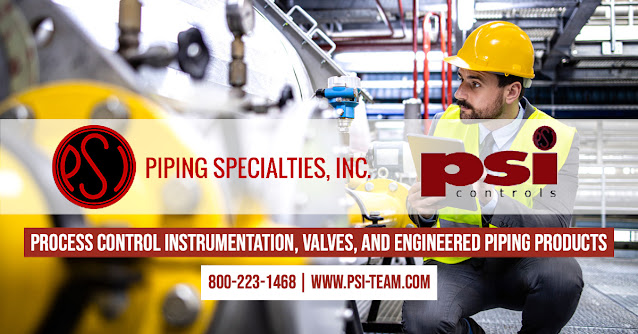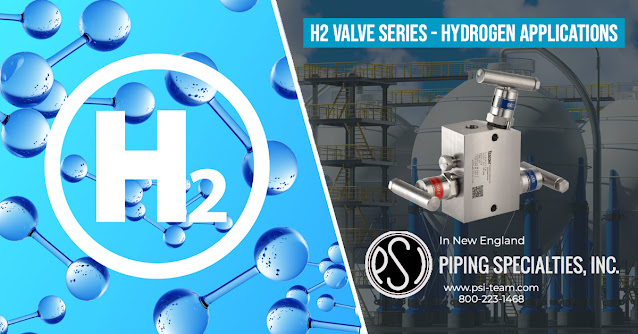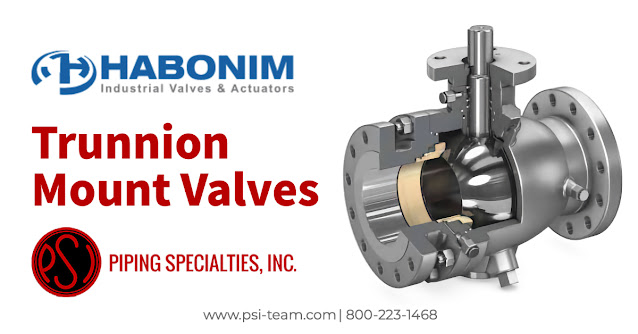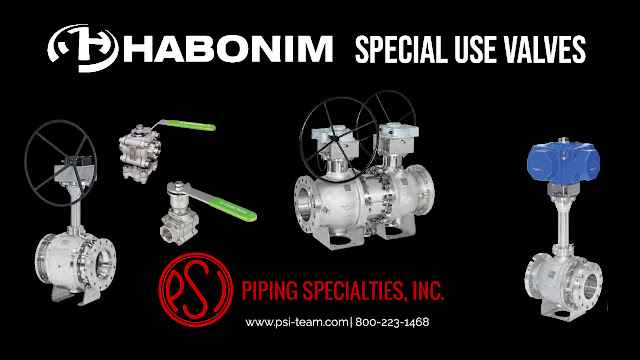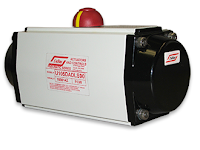 |
| Scotch-yoke actuators (Morin) |
Pneumatic valve actuators all provide the same function: They convert air pressure to rotational
movement and are designed to open, close, or position a quarter-turn valve. These include ball valves, plug valves, butterfly valves, or other types of 90 degree rotational valves.
The basic design variations of pneumatic valve actuators are as follows:
- Rack and pinion
- Scotch-yoke
- Rotary vane
Let's review each of these in detail:
Rack and Pinion Actuators
These actuators are sometimes referred to as, “lunch box,” because they, well, look like a lunch box. This actuator uses opposing pistons with integral gears to engage a pinion gear shaft to produce rotation. They are usually more compressed than a scotch yoke, have standardized mounting patterns, and produce output torques suitable for small-to-medium sized valves.
Rack and pinion nearly always include standard bolting and coupling patterns to directly attach a valve, solenoid, limit switch or positioner. One of their features include several smaller coil springs mounted internally, which provide the torque to return the valve to its starting position.
Scotch-yoke Actuators
 |
| Scotch-yoke actuators internal view. |
These actuators come in a multitude of sizes, but are usually used on larger valves because they can produce a very high torque output. They employ a pneumatic piston mechanism to transfer movement to a linear push rod. That rod, in turn, engages a pivoting lever arm to provide rotation. Spring return units have a large return spring module mounted on the opposite end of the piston mechanism working directly against the pressurized cylinder.
Rotary Vane Actuators
 |
| Rotary vane actuator animation. |
These actuators are usually used when the application requires a significant space savings. They take up less space when comparing size-to-torque with rack and pinion and scotch yoke. Rotary van actuators also benefit from a reputation of longevity. They contain fewer moving parts than other types of pneumatic valve actuators. Rotary vane actuators use externally mounted, helically wound "clock springs" for their spring return mechanism.
These style of valve actuators can all be secured with direct acting or spring return versions. Direct acting actuators use the air supply to move the actuator in both directs (open and close). Spring return actuators, as the name describes, uses springs to move the actuator back to its "resting" state. Converting a version from direct acting to spring return is done through simple modifications, typically just adding an external spring module, or removing the end caps from rack and pinion actuators and installing several coil springs.
When considering the choice of pneumatic valve actuators, your decision comes down to size, power, torque curve and the ease of adding peripherals. To ensure that your valve actuation package will be optimized for safety, longevity, and performance, the advice of a
qualified valve automation expert should be sought out. That expert will be able to help you with the best selection of the appropriate valve actuator for any quarter turn valve application.
For more information on valve actuation, contact
Piping Specialties, Inc.
https://psi-team.com
800-223-1468

